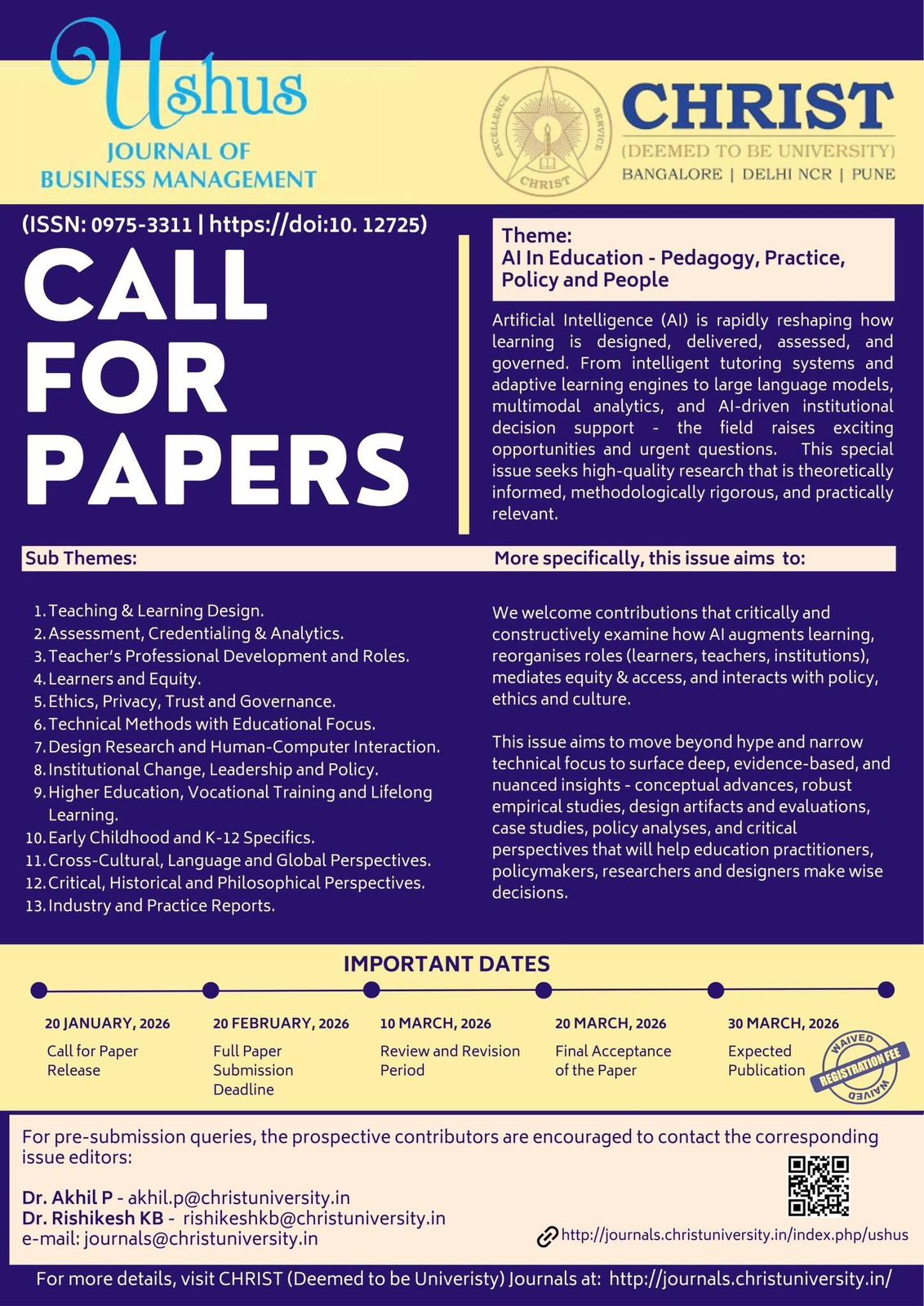The Psychology of Colour Influences Consumers’ Buying Behaviour – A Diagnostic Study
DOI:
https://doi.org/10.12725/ujbm.41.1Abstract
Colour plays an important role in marketing products. It is a powerful marketing tool that influences consumer purchases in many aspects. Marketers must explore the harmony of colours for successful marketing of products. Nearly all products sold today have colourful facades. Selecting the right colours to use has an enormous impact on product sales. While no single set of rules governs colour choices, research has established general guidelines based on the principle of associative learning, the relationship between colour and emotion. The researcher made a diagnostic study on the psychology of colour influences consumers buying behaviour. Secondary data has been extensively used in this research. Colour properties like hue, saturation and value, were discussed. Usage of colours in the packing of products, how colours earn brand image to a product, how colours help marketers to communicate the brand to customers and how to match colours with customer’s personality are extensively discussed. Conclusions were drawn based on this diagnostic study.
References
Bubl, E., Kern, E., Ebert, D., Bach, M., & Van Elst, L. T. (2010). Seeing gray when feeling blue? Depression can be measured in the eye of the diseased. Biological psychiatry, 68(2), 205-208.
Chang, W. L., & Lin, H. L. (2010). The impact of color traits on corporate branding. African Journal of Business Management, 4(15), 3344.
Clarke, T., & Costall, A. (2008). The emotional connotations of color: A qualitative investigation. Color Research & Application, 33(5), 406-410.
Fairchild, M. D. (2013). Color appearance models. NY: Wiley Press.
Fetterman, A. K., Liu, T., & Robinson, M. D. (2015). Extending color psychology to the personality realm: Interpersonal hostility varies by red preferences and perceptual biases. Journal of personality, 83(1), 106-116.
Gofman, A., Moskowitz, H. R., & Mets, T. (2010). Accelerating structured consumer-driven package design. Journal of Consumer Marketing, 27(2), 157-168.
Hemphill, M. (1996). A note on adults' color–emotion associations. The Journal of genetic psychology, 157(3), 275-280.
Kareklas, I., Brunel, F. F., & Coulter, R. (2012). Judgment is not color blind: The impact of automatic color preference on product and advertising preferences. Journal of Consumer Psychology, 24, 87–95.
Lee S., Lee K., Lee S., Song J. (2013). Origins of Human Colour preference for food. Journal of Food Engineering.
Morton, J. L. (2012). Colour & Branding. Mobile Colour Matters. NWI Designs. Web. 30 Apr. 2013.
Naz, K. A. Y. A., and H. Epps (2004). Relationship between Colour and Emotion: a Study of College Students. College Students Journal, 38(3), 396‐405.
Prado-León L. R., Rosales-Cinco R. A. (2011). “Effects of Lightness and Saturation on Colour Associations in the Mexican Population,” in New Directions in Colour Studies, eds. Biggam C., Hough C., Kay C., Simmons D., editors. (Amsterdam, NL: John Benjamins Publishing Company), 389–394.



